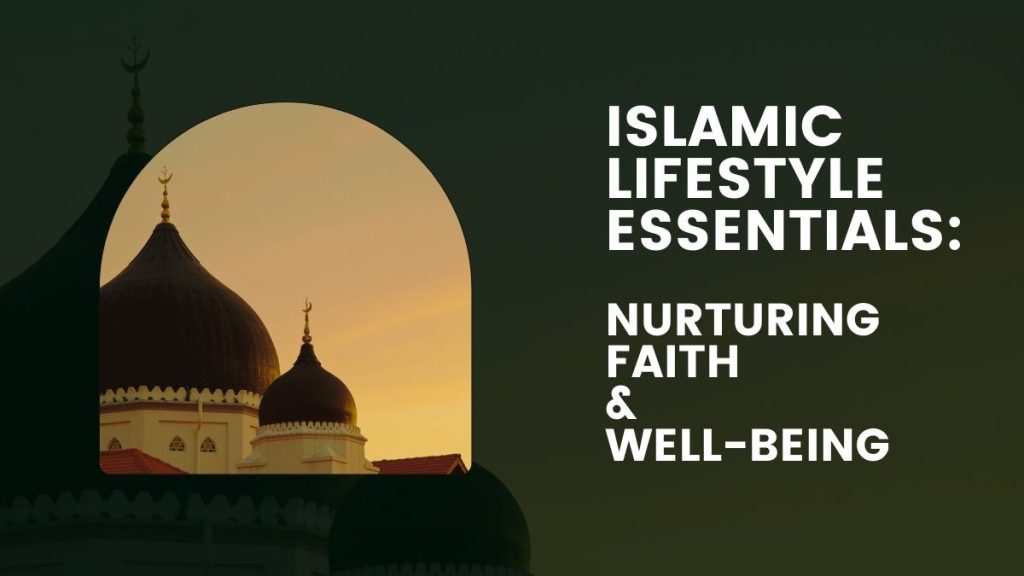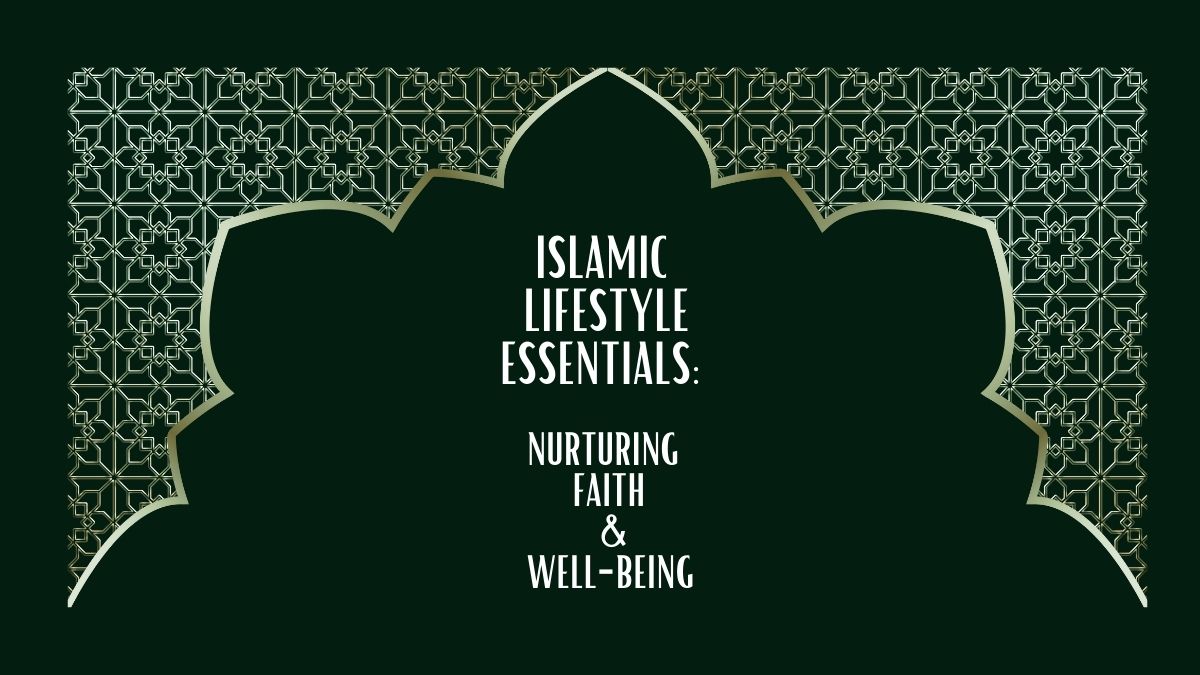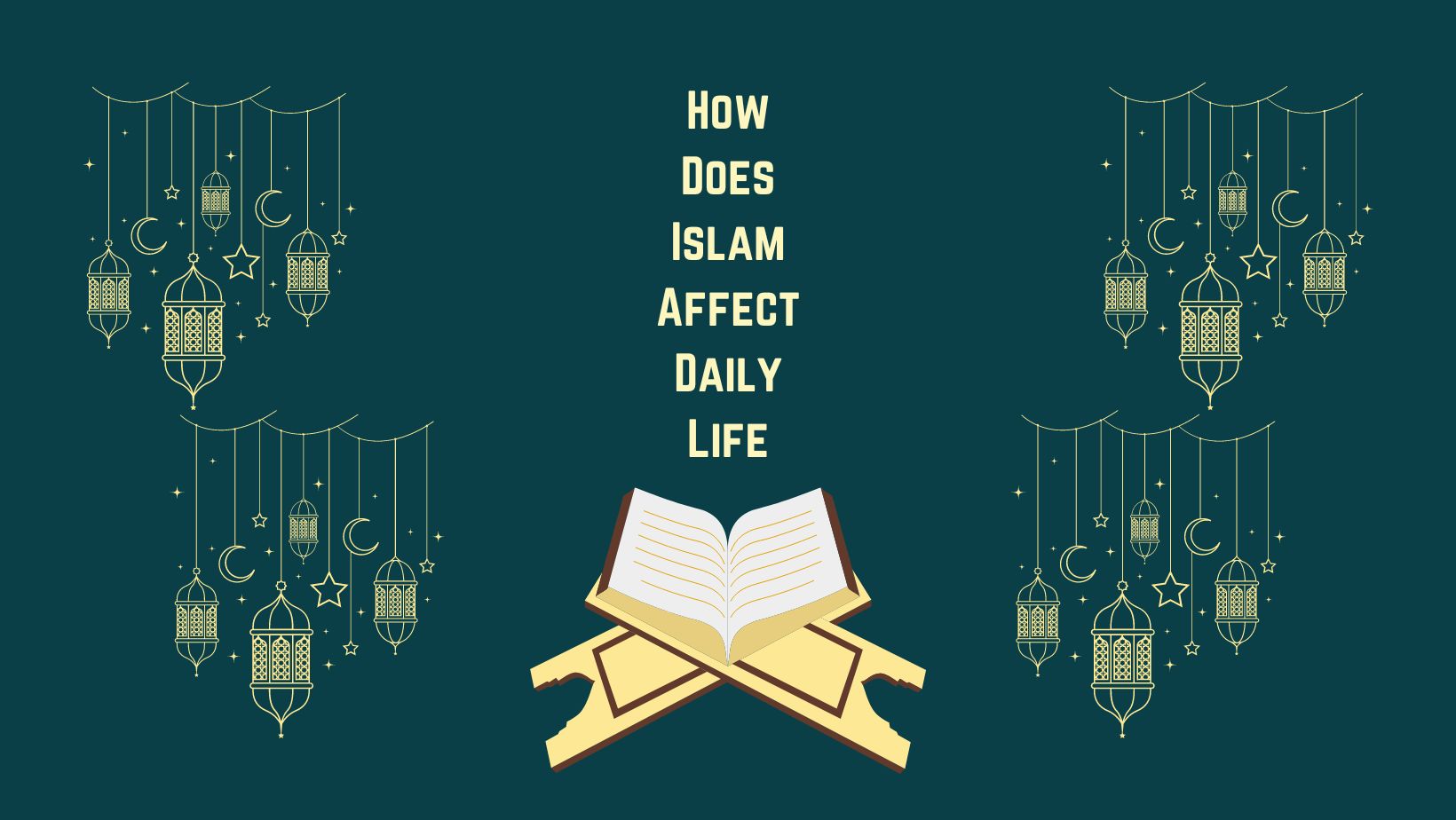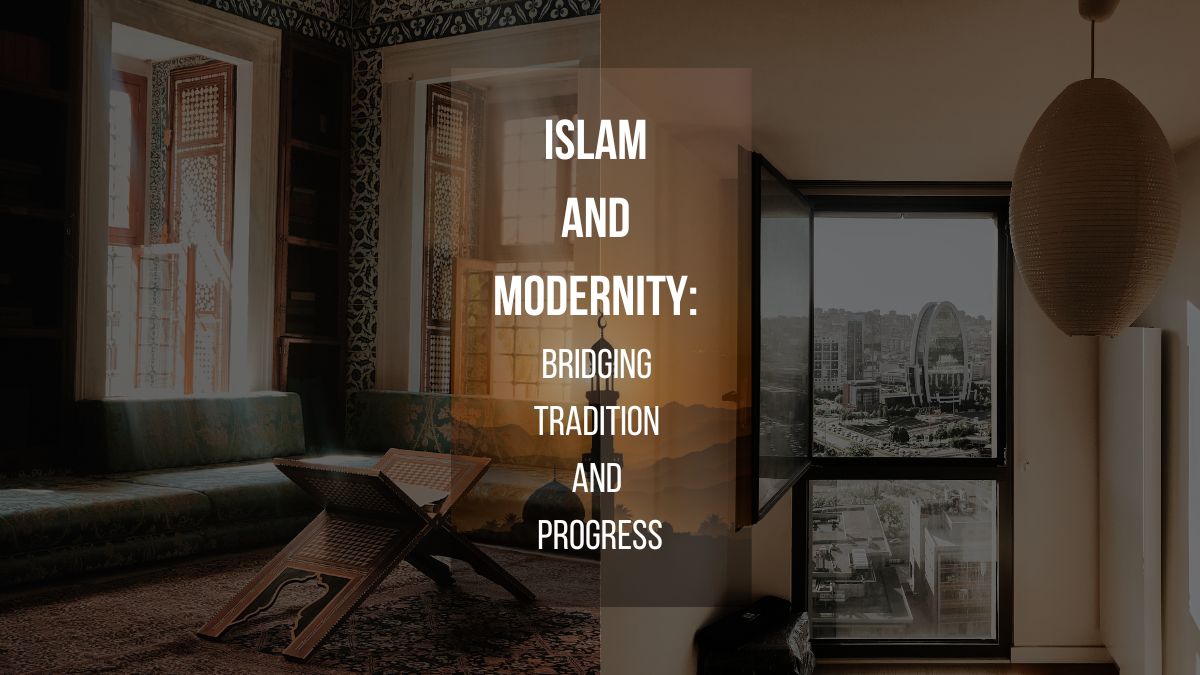Islamic lifestyle encompasses daily practices rooted in faith and guided by the teachings of the Quran and Hadith. It promotes a balanced and ethical way of living.
Islamic lifestyle emphasizes prayer, charity, and modesty. Muslims follow the Five Pillars of Islam, which include faith, prayer, fasting, charity, and pilgrimage. These pillars guide their daily actions and interactions. The Quran and Hadith provide comprehensive guidance on personal conduct, family life, and community responsibilities.
Muslims strive to maintain cleanliness, both physically and spiritually, and make ethical choices in diet and behavior. The Islamic way of life encourages compassion, honesty, and respect towards others, fostering a harmonious and peaceful society. By adhering to these principles, Muslims aim to achieve a balanced and fulfilling life.
Related Article: Tawheed: The Essence of Islamic Monotheism Explained

Related Article: How Does Islam Affect Daily Life: Unveiling the Impact
You may also read: Islamic Spirituality: Unlocking Inner Peace and Enlightenment
Foundations Of Islamic Lifestyle
The Islamic lifestyle is built on deep faith and strong values. These values guide Muslims in every part of their lives. Understanding these foundations helps in embracing the beauty and wisdom of Islam.
Core Beliefs And Practices
Islam is based on Five Pillars which are the core beliefs and practices. These pillars are:
- Shahada: Faith in one God, Allah, and Muhammad as His messenger.
- Salah: Performing prayers five times a day.
- Zakat: Giving to charity and helping those in need.
- Sawm: Fasting during the holy month of Ramadan.
- Hajj: Pilgrimage to the holy city of Mecca at least once in a lifetime.
These pillars are the foundation of a Muslim’s faith and actions. They shape the way Muslims live and interact with the world.
Integrating Faith In Daily Activities
Faith in Islam is not limited to rituals. It extends to daily activities and decisions. Here are some ways to integrate faith into daily life:
- Prayer: Start and end the day with prayers.
- Charity: Help neighbors and donate to those in need.
- Diet: Follow halal dietary laws, eating permissible foods.
- Honesty: Be truthful in all dealings and interactions.
- Respect: Show respect to parents, elders, and all people.
Living an Islamic lifestyle means letting faith guide every action. This brings peace and fulfillment.
| Aspect | Description |
|---|---|
| Faith | Believing in one God and His messenger. |
| Prayer | Performing prayers five times daily. |
| Charity | Giving to those in need. |
| Fasting | Fasting during Ramadan. |
| Pilgrimage | Visiting Mecca once in a lifetime. |
Prayer And Mindfulness
Prayer and mindfulness hold a special place in Islamic lifestyle. They offer a way to connect with Allah and find inner peace. This connection is vital for every Muslim. It helps in grounding the soul and creating a sense of purpose. Below, we explore daily prayers and mindfulness in Islam.
Daily Prayers As Spiritual Anchors
Daily prayers, or Salah, are essential in Islam. Muslims pray five times a day. These prayers serve as spiritual anchors. They keep Muslims connected to their faith. Each prayer has its own significance and benefits.
| Prayer Name | Time of Day |
|---|---|
| Fajr | Before dawn |
| Dhuhr | Midday |
| Asr | Afternoon |
| Maghrib | After sunset |
| Isha | Night |
Each prayer time is a moment to pause and reflect. It is a break from daily activities. This helps Muslims stay focused and grounded.
Mindfulness And Reflection In Islam
Mindfulness in Islam is about being present. It involves focusing on the here and now. This practice is part of the faith. It helps Muslims in their spiritual journey.
Reflection, or Tafakkur, is also important. It is about thinking deeply about life and existence. This reflection leads to a better understanding of Allah. It helps in making better choices.
- Daily prayers incorporate moments of mindfulness.
- Reflection helps in personal growth.
- Being present enhances spiritual connection.
Mindfulness and reflection are not just religious acts. They are ways to improve life. They bring peace and clarity. This makes them essential in an Islamic lifestyle.
Related Article: The Role of Mosques in Islam: Spiritual Hubs and Community Centers
You may also read: Islamic Finance: Unlocking Ethical Investment Opportunities
Holistic Well-being In Islam
Islam places great importance on holistic well-being. This includes physical, mental, and spiritual health. The teachings of Islam provide a comprehensive guide. They ensure a balanced and fulfilling life.
Physical Health In The Light Of Sunnah
Physical health holds a significant place in Islam. The Prophet Muhammad (PBUH) emphasized its importance. He advised maintaining a balanced diet and regular exercise. Here are some key points:
- Balanced Diet: Eat in moderation. Include fruits, vegetables, and lean meats.
- Regular Exercise: Engage in physical activities. Walking and swimming are recommended.
- Cleanliness: Maintain personal hygiene. It is considered half of faith.
The Sunnah encourages a healthy lifestyle. It promotes physical well-being. Following these teachings helps in maintaining good health.
Mental Health And Spiritual Peace
Mental health is equally important in Islam. The Quran and Sunnah offer guidance for mental peace. Here are some practices:
- Prayer: Perform daily prayers. It brings tranquility and focus.
- Meditation: Engage in Dhikr (remembrance of Allah). It calms the mind.
- Community Support: Stay connected with family and friends. Social bonds are crucial.
Spiritual peace is achieved through faith and trust in Allah. Mental health is nurtured by practicing patience and gratitude. These teachings provide a roadmap for a peaceful mind and soul.
| Aspect | Guidance |
|---|---|
| Physical Health | Balanced diet, regular exercise, cleanliness |
| Mental Health | Prayer, meditation, community support |
| Spiritual Peace | Faith, trust, patience, gratitude |
In Islam, holistic well-being is essential. It encompasses physical, mental, and spiritual health. Following the teachings ensures a balanced life.
Community And Charity
Islamic lifestyle emphasizes the importance of community and charity. These values are core to the daily life of Muslims. They foster a sense of unity and empathy among believers. Let’s delve into these concepts with a focus on their roles and responsibilities.
The Role Of Ummah
The term Ummah refers to the global community of Muslims. This community is bound by faith and shared values. Every Muslim considers themselves a part of this larger family.
- Unity: Muslims strive to maintain unity within the Ummah. This unity is crucial for collective strength.
- Support: Members support each other in times of need. This support can be emotional, financial, or spiritual.
- Brotherhood: The concept of brotherhood promotes love and mutual respect. It transcends race, nationality, and social status.
Zakat And Social Responsibility
Zakat is a form of almsgiving and a fundamental pillar of Islam. It represents social responsibility and compassion towards the less fortunate.
Here are some key points about Zakat:
| Aspect | Description |
|---|---|
| Obligation | Every eligible Muslim must pay Zakat. It is usually 2.5% of their savings. |
| Purpose | Zakat helps reduce poverty and inequality. It supports those in financial need. |
| Beneficiaries | Recipients include the poor, orphans, and travelers. It also helps those in debt. |
By paying Zakat, Muslims purify their wealth. They also strengthen community bonds and promote social justice.
Related Article: Hijamah: Ancient Healing Practice with Modern Benefits

Related Article: What Makes Islam Unique: Insights & Distinctions
Learning And Personal Development
Islamic lifestyle emphasizes the importance of learning and personal development. In Islam, seeking knowledge is considered an act of worship. It helps individuals grow spiritually and intellectually.
Continuous Education In Islamic Tradition
In Islamic tradition, education is a lifelong journey. The Prophet Muhammad (peace be upon him) said, “Seek knowledge from cradle to grave.” This highlights the importance of continuous education.
Muslims are encouraged to read, study, and reflect on the Quran. This holy book is a source of wisdom. It provides guidance for all aspects of life.
Islamic schools and universities offer various courses. These institutions focus on both religious and secular subjects. They aim to produce well-rounded individuals.
Balancing Dunya And Akhirah
Balancing Dunya (worldly life) and Akhirah (hereafter) is crucial in Islam. Muslims strive to achieve success in both realms.
The Quran teaches that while worldly achievements are important, they should not distract from spiritual goals. Muslims believe that actions in this world affect their afterlife.
To maintain this balance, Muslims follow a structured routine. They perform daily prayers, engage in community service, and seek knowledge. This helps them stay grounded and focused on their spiritual journey.
| Activity | Purpose |
|---|---|
| Daily Prayers | Spiritual connection with Allah |
| Community Service | Helping others and earning rewards |
| Seeking Knowledge | Personal growth and understanding |
By balancing both aspects, Muslims aim to lead a fulfilling life. They work hard in this world and prepare for the hereafter.
Explore Your Guided Roadmap To Faith of Islam>>
Related Article: The Five Pillars of Islam: A Comprehensive Guide
Conclusion
Embracing an Islamic lifestyle offers spiritual growth, peace, and harmony. It aligns daily actions with faith. This way of life nurtures community bonds and personal well-being. Adopting these principles can lead to a fulfilling and balanced life. Explore and integrate Islamic values to enrich your journey.
Related Article: Islam And Modernity: Bridging Tradition and Progress
Related Article: Zakat: Transforming Lives Through Compassionate Giving




5 thoughts on “Islamic Lifestyle Essentials: Nurturing Faith & Well-being”